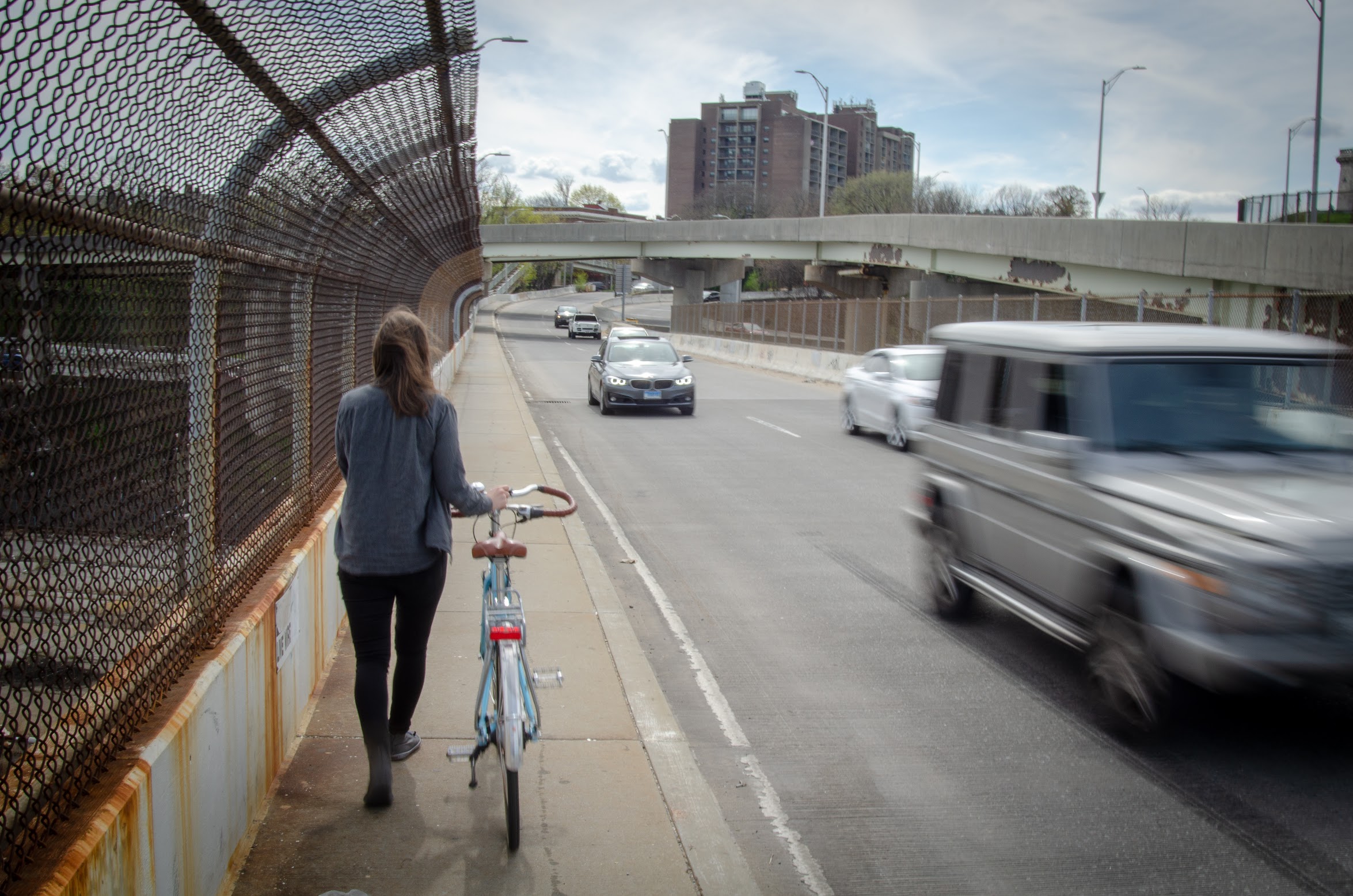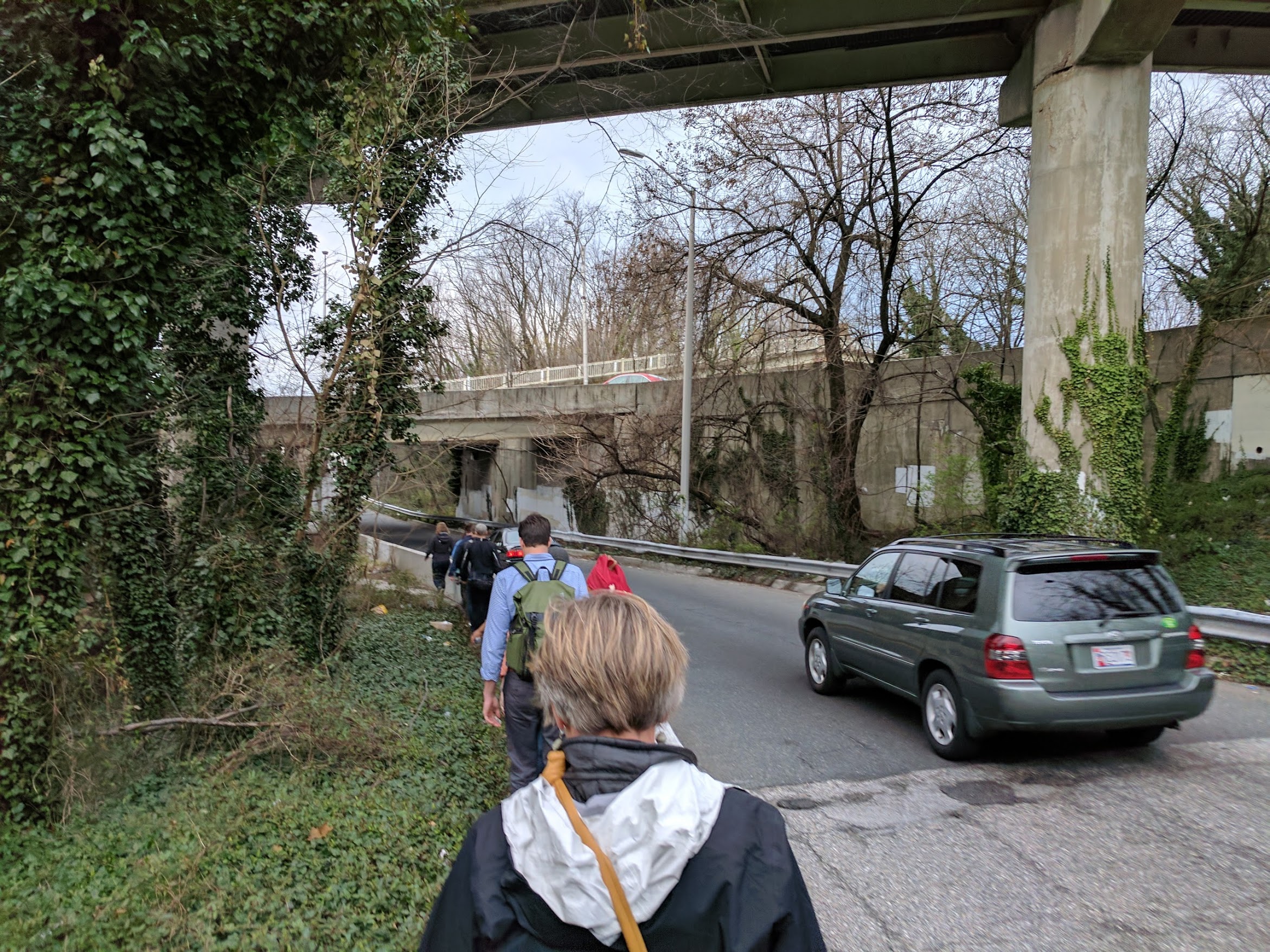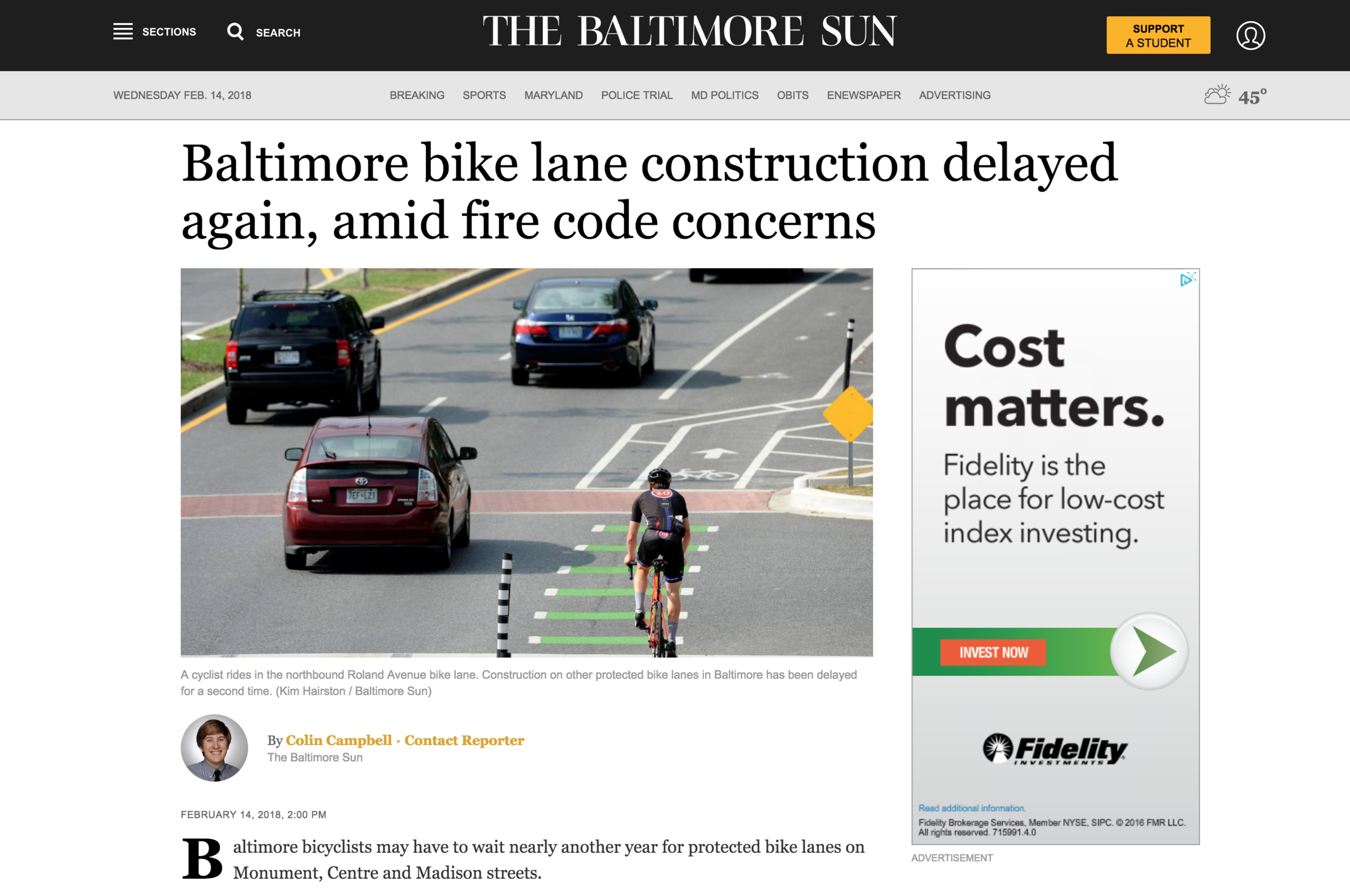Proposed Changes to Druid Park Lake Drive
In January of last year, Baltimore was one of 10 cities selected for the PeopleForBikes Big Jump Project, a grant aimed at bolstering ridership in an already successful community and expanding that ridership into adjacent communities. Reflecting that grant constraint, Baltimore City's application focused on improving connectivity between an area of high opportunity, Remington, and areas in need of opportunity, including Penn North and Reservoir Hill.
In late May, Baltimore City Department of Transportation plans to install the first component of the the Big Jump Project.
The ongoing DPW Druid Lake Reservoir construction and the traffic changes necessary to stage equipment for that project will result in lane closures on Druid Park Lake Drive. Taking advantage of these already required road closures, we're able to construct a walking and biking connection across Druid Park Lake Drive and the 28th Street bridge, connecting Remington directly to Reservoir Hill and Penn North.
The current crossing is a narrow sidewalk alongside highway speed travel lanes that leads to a non-ADA accessible pedestrian bridge and an overgrown path alongside a highway onramp. Photos of existing conditions are below.
The new connection would be a wide shared-use path separated by water-filled barriers and planters. It will extend from Atkinson Street in Remington to Madison Avenue on the border of Reservoir Hill and Penn North. Additionally, the path will extend north on Sisson Street in Remington to connect to the existing Jones Falls Trail at Wyman Park Drive and extend west along an existing path and sidewalk to connect to the basketball courts on Druid Hill Avenue.
The proposed barrier-protected bike and pedestrian path route is outlined in teal above.
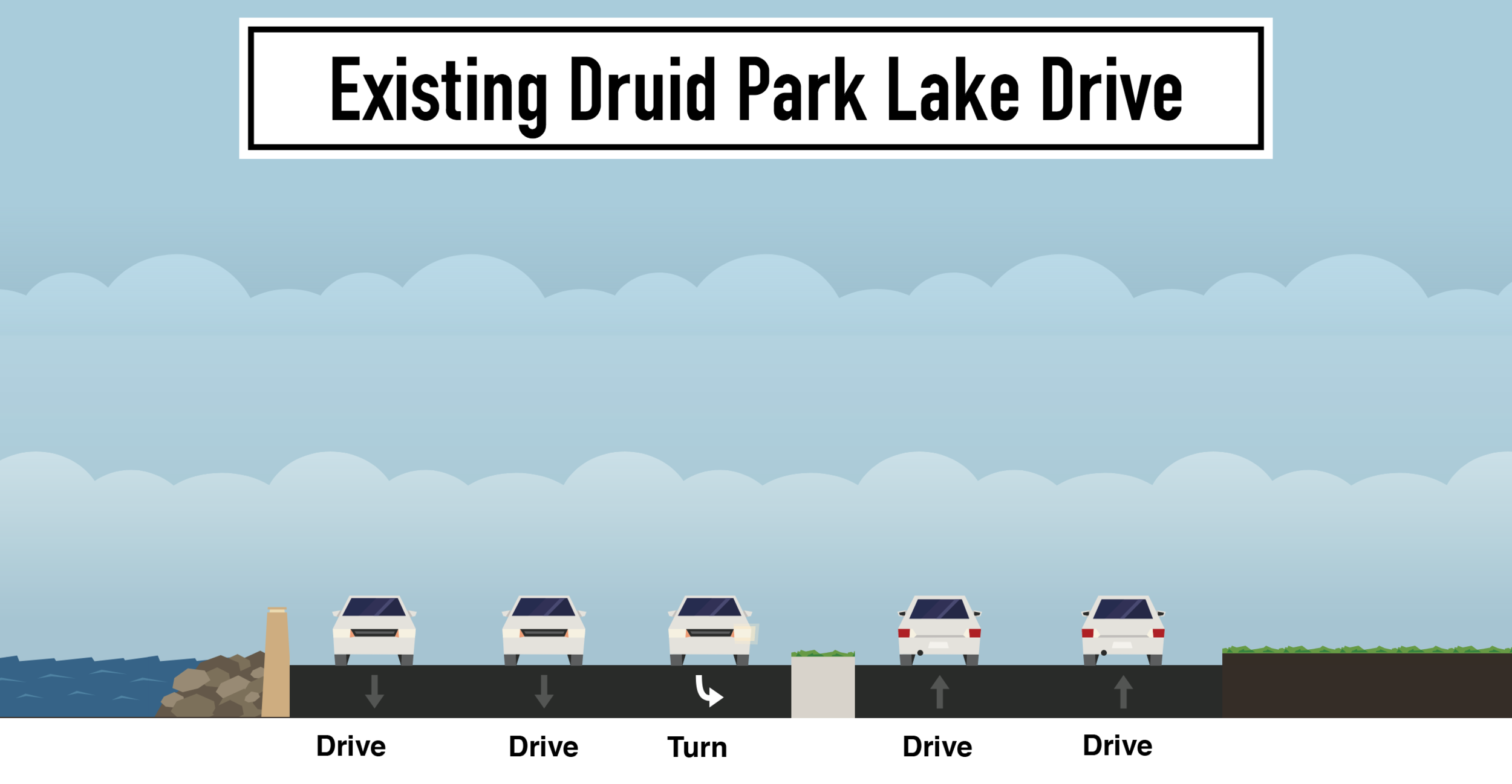
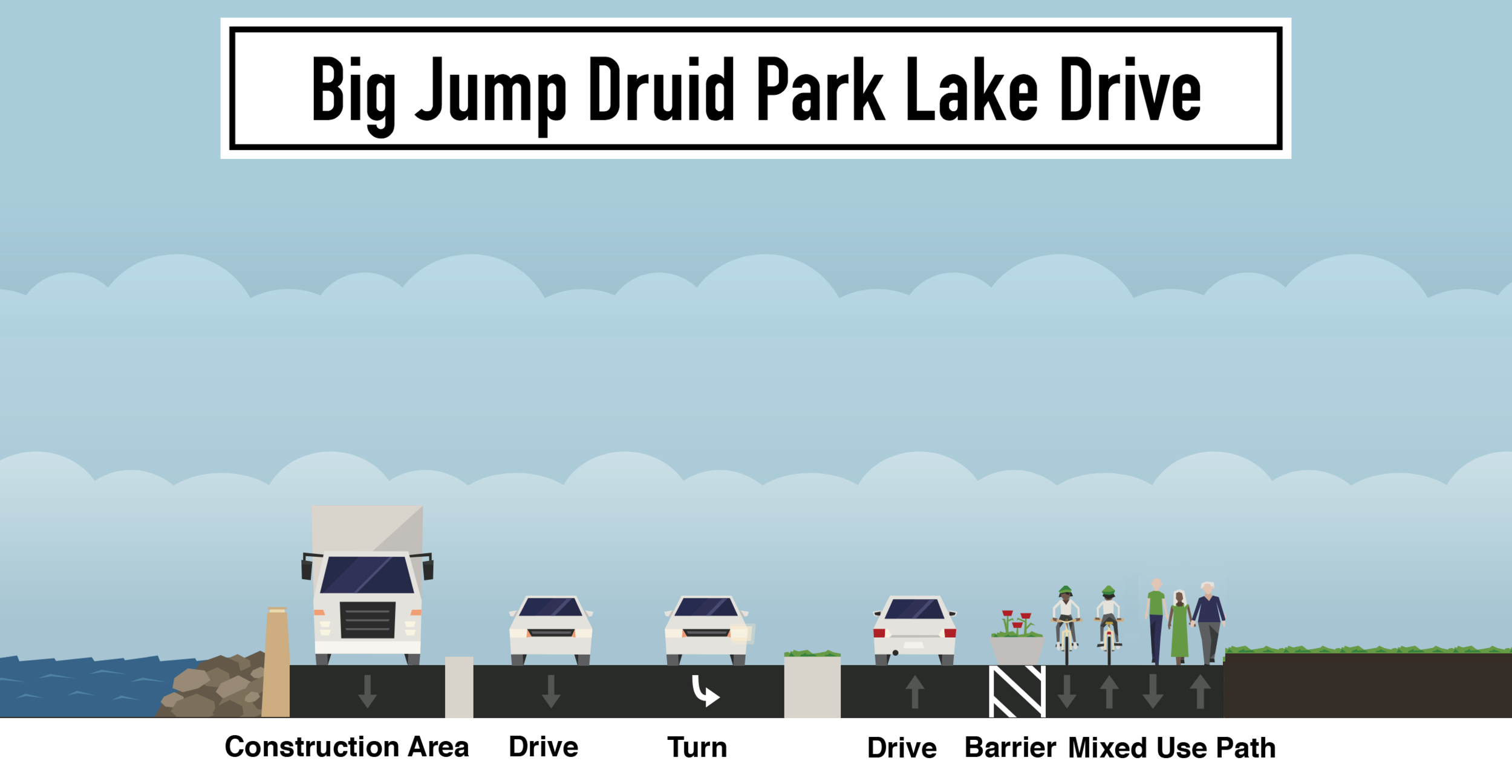
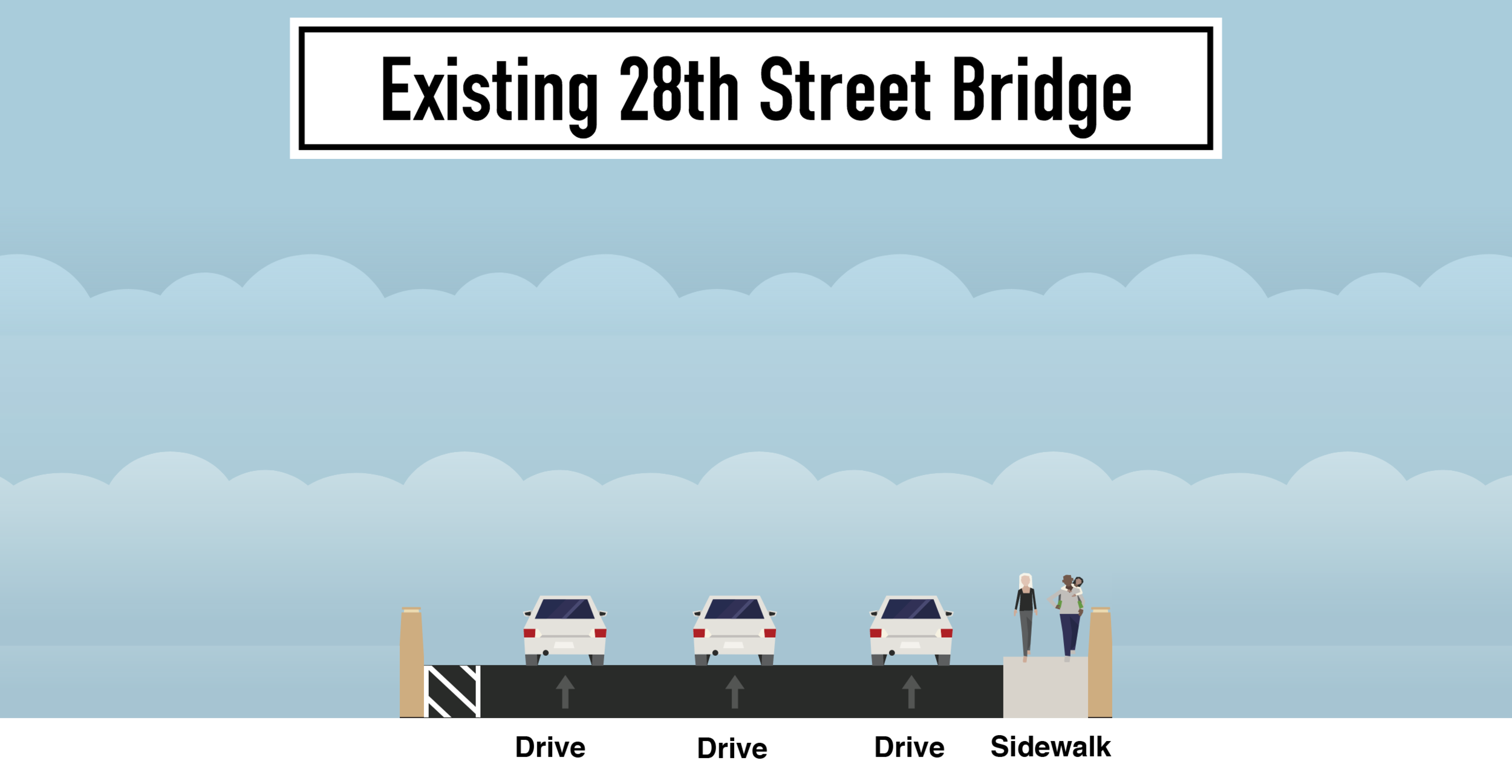
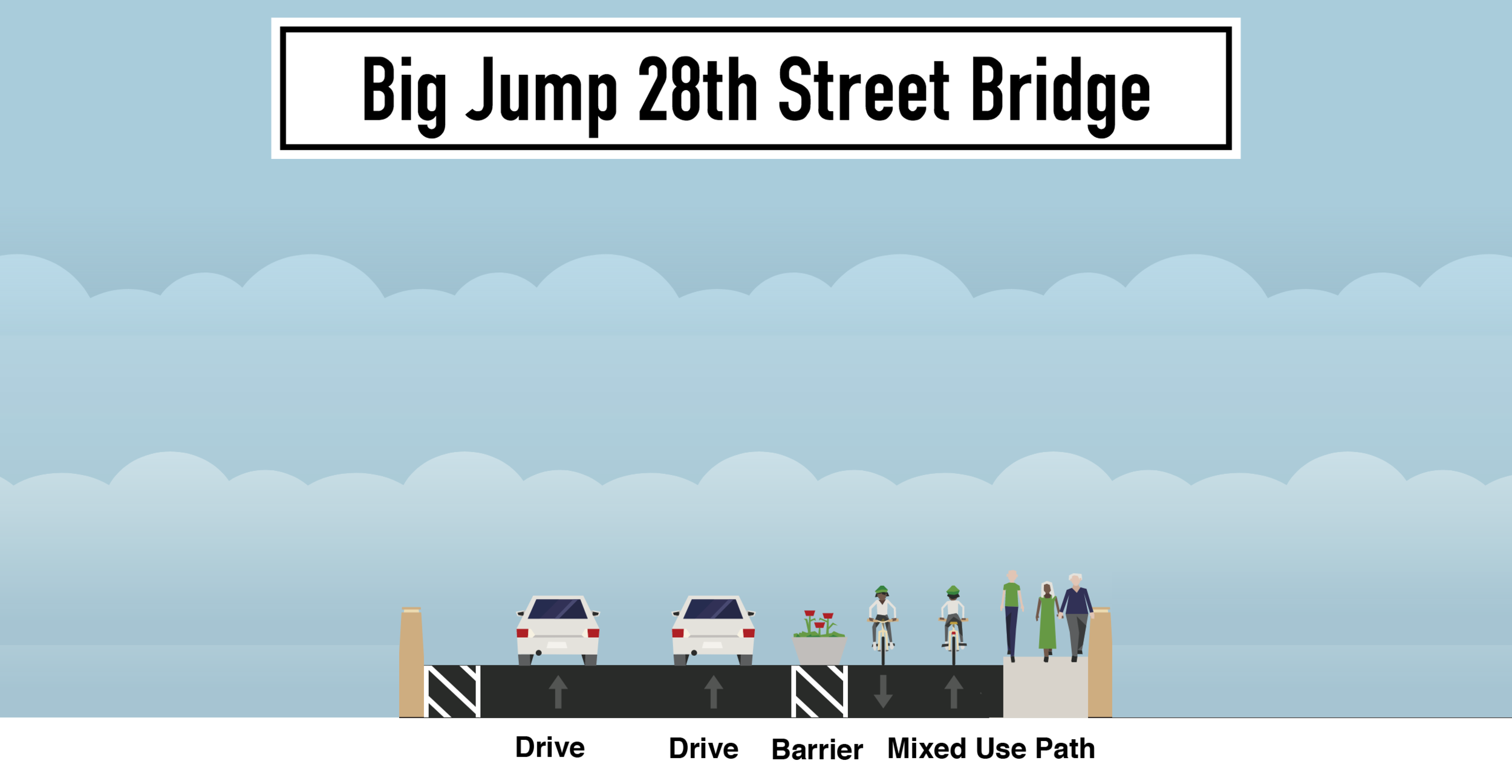
The installation of this walking and biking path in late May will reduce Druid Park Lake Drive to one lane eastbound. Reservoir related construction will reduce Druid Park Lake Drive to one lane westbound. Not only will this project provide a safe walking and biking connection between neighborhoods across a highway, it will halve the crossing distance for pedestrians looking to access Druid Hill Park from neighborhoods to the south.
Baltimore City Department of Transportation is also engaging in a large-scale corridor study of Auchentoroly Terrace and Druid Park Lake Drive. The goal is to incorporate the successes of this Big Jump Project idea into permanent road reconfiguration or removal to better reconnect Druid Hill Park to the neighborhoods surrounding it, while creating permanent safer walking and biking connections.
This idea has become a potential reality due to persistent advocacy and leadership from Bikemore and Councilman Leon Pinkett, as well as a commitment to The Big Jump Project from BCDOT Director Michelle Pourciau, dedicated and creative staff like Graham Young, and the Mayor's Bicycle Advisory Commission.
Community meetings outlining this project are coming up, and we encourage neighbors to come out to learn more and support this project. Details are below.


